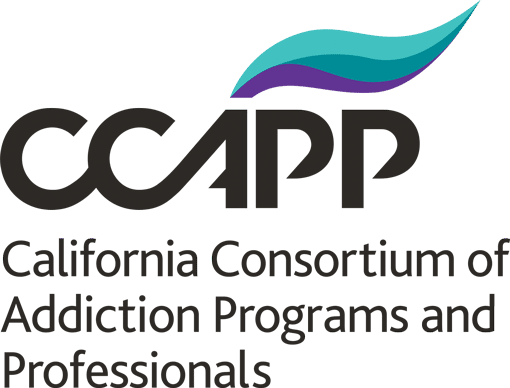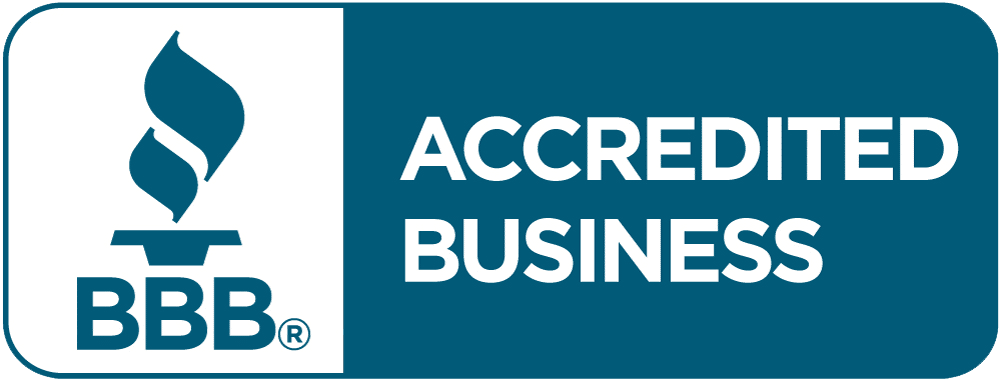
Substance abuse is a serious issue that affects millions of people worldwide. Whether it’s drugs, alcohol, or other addictive substances, addiction can cause a range of physical, emotional, and social problems that can be difficult to overcome.
For those struggling with substance abuse, interventions can be a powerful tool to help them get the help they need. But what are interventions, and how do they work? In this article, we’ll explore the different types of substance abuse interventions and their benefits, helping you understand how they can positively impact the lives of those struggling with addiction.
Crisis or Emergency Interventions
When it comes to substance abuse, sometimes immediate action must be taken to prevent a potentially life-threatening situation. This is where crisis or emergency interventions come into play.
Crisis interventions are designed to quickly address a person’s substance abuse problem when they are experiencing a crisis, such as an overdose. This type of intervention aims to provide the person with immediate support and access to treatment, with the goal of stabilizing their condition and preventing further harm.
On the other hand, emergency interventions are used when someone is actively engaging in dangerous behaviors due to substance abuse, such as driving under the influence. These interventions may involve calling emergency services, such as the police or an ambulance, to help remove the person from the situation and get them the medical attention they need.
Interventions during times of crisis or emergency can have a significant impact because they can save lives and avert long-term harm from substance abuse. However, it’s important to remember that these interventions are not a substitute for long-term treatment and support. Following a crisis or emergency intervention, the person will need ongoing care to address the underlying causes of their substance abuse and prevent future crises from occurring.
Family Interventions
Substance abuse doesn’t just affect the person with the addiction; it can also have a significant impact on their loved ones. Family interventions are a type of substance abuse intervention that involves the individual’s family members. A family intervention aims to help the individual understand how their addiction affects their loved ones and encourage them to seek treatment.
During a family intervention, the family members and the individual come together to have a conversation about the addiction. It’s important to note that this conversation should be non-confrontational and focused on helping the individual understand the consequences of their addiction. It’s also important for family members to express their love and support for the individual.
Family interventions can be especially helpful for individuals who may not realize how their addiction is affecting their loved ones. It can be a wake-up call for the individual and may motivate them to seek help. In some cases, family members may also need support and resources to help them cope with the impact of the addiction on their own lives.
If you’re considering a family intervention, it’s important to work with a professional interventionist who can guide you through the process. They can help you prepare for the conversation and facilitate the intervention to ensure it’s a productive and positive experience for everyone involved.
In summary, family interventions are a valuable tool for helping individuals with substance abuse get the help they need. The involvement of family members in the process can help the individual see the impact of their addiction and provide them with the support they need to seek treatment.
Yet, it’s important to note that family interventions are not a one-size-fits-all solution and may not work for every individual or family. Some individuals may not have supportive or understanding family members, while others may not respond well to the intervention approach. In these cases, alternative interventions may be necessary.
Workplace Interventions
Workplace interventions are another effective way to address substance abuse among employees. As with family interventions, workplace interventions aim to confront an employee who is struggling with substance abuse, encourage them to seek help and provide support during the recovery process.
There are several reasons why workplace interventions are effective. Firstly, employees who are struggling with substance abuse often show signs of absenteeism, reduced productivity, and accidents at work. This can lead to financial losses for the company. By addressing the issue, employers can reduce the risk of these negative consequences and improve the overall functioning of the company.
Secondly, workplace interventions often involve a team approach, with co-workers and employers working together to help the employee struggling with addiction. This approach can be incredibly effective, as the support of a community can be a powerful motivator for change.
Workplace interventions can also help reduce the stigma around substance abuse. By addressing the issue openly and without judgment, workplaces can create a culture of support and understanding for those who are struggling with addiction.
To implement a workplace intervention, employers should work with a professional interventionist who can help facilitate the intervention. It’s important to ensure that the intervention is done in a sensitive and confidential manner to protect the privacy of the employee in question. If an employee does decide to seek help after a workplace intervention, it’s important for the company to offer support and resources. This may include providing time off for treatment or referrals to treatment facilities.
Johnson-Model Interventions
The Johnson-Model Intervention, developed by Vernon Johnson, is a popular approach that involves a confrontational approach. This type of intervention is a highly structured and focused approach designed to help individuals struggling with addiction recognize the severity of their problem and take steps to address it.
The Johnson-Model Intervention typically involves a team of family members, friends, and a trained interventionist who work together to stage the intervention. The interventionist helps the group plan and execute the intervention, providing guidance and support along the way.
During the intervention, the team confronts the individual struggling with addiction in a caring, non-judgmental way. They share their concerns about the individual’s behavior and the impact it is having on their lives and relationships. The goal is to encourage the individual to accept treatment and get help for their addiction.
While the Johnson-Model Intervention can be an effective approach, it’s important to note that it may not be suitable for everyone. The confrontational approach may not work for individuals who are resistant to change or who have a history of trauma. In some cases, a more gentle approach may be necessary.
It’s also important to note that the success of an intervention depends on many factors, including the willingness of the individual to accept help. While an intervention can be a powerful tool to encourage someone to seek help, it is not a guarantee of success.
Overall, the Johnson-Model Intervention is a structured and effective approach for helping individuals struggling with addiction recognize the severity of their problem and take steps toward recovery. By working with a team of supportive individuals and a trained interventionist, those struggling with addiction can feel empowered to seek the help they need to overcome their addiction and move toward a healthier, happier life.
This will involve attending support groups, continuing therapy, or staying connected with their treatment team. By providing ongoing support and encouragement, friends and family members can play a crucial role in helping their loved one achieve and maintain sobriety.
Dual Diagnosis Interventions
Substance abuse and mental health issues often go hand-in-hand, and this is known as a “dual diagnosis” or “co-occurring disorder.” When a person struggles with both substance abuse and mental health problems, it can make recovery even more challenging. That’s why dual diagnosis interventions have been developed to help these individuals overcome their addictions and mental health conditions at the same time.
Dual-diagnosis interventions involve treating both the addiction and the mental health issue simultaneously with the help of a trained professional. This could include medication-assisted treatment, cognitive-behavioral therapy, group therapy, and more.
One of the biggest benefits of dual-diagnosis interventions is that they offer a more comprehensive approach to recovery. Rather than only treating one aspect of the person’s issues, dual diagnosis interventions can address both the addiction and the mental health problem. This can result in more effective and lasting outcomes.
Another benefit is that those dual-diagnosis interventions can help identify the root cause of the addiction. Many people turn to drugs or alcohol as a way to cope with underlying mental health issues such as depression, anxiety, or trauma. By treating both the addiction and the underlying mental health problem, a person can achieve long-term sobriety.
If you or someone you love is struggling with both substance abuse and a mental health disorder, consider seeking out a dual-diagnosis intervention program. With the right support and treatment, recovery is possible.
Benefits of Substance Abuse Interventions
Substance abuse interventions offer a wide range of benefits for individuals struggling with addiction. Here are some of the most significant benefits:
- Increased chances of recovery: Perhaps the most significant benefit of substance abuse interventions is that they can significantly increase the chances of recovery. By intervening before an individual’s addiction becomes even more severe, you can help them turn their life around and achieve sobriety.
- Improved relationships: Substance abuse can be extremely isolating and often damages relationships with loved ones. Through interventions, you can begin to repair these relationships and rebuild trust between family members, friends, and coworkers.
- Encouragement and support: When someone is struggling with addiction, it’s common for them to feel like no one understands what they’re going through. Through interventions, they can see that there are people who care about them and want to support them on their journey to recovery.
- Access to resources: Interventions can also connect individuals struggling with addiction to important resources such as counseling, support groups, and rehabilitation facilities.
- Prevention of dangerous situations: Substance abuse can often lead to dangerous situations, such as overdoses or accidents while under the influence. Through interventions, you can help prevent these potentially life-threatening situations from occurring.
Overall, substance abuse interventions offer numerous benefits for both individuals struggling with addiction and their loved ones. By intervening early and offering support, you can help facilitate a positive change in someone’s life and encourage them on their journey to recovery.
How Christian’s Drug Rehab Can Help
Dealing with substance abuse is never easy, but with the right support, individuals can overcome their addiction and start a new life. That’s where Christian’s Drug Rehab comes in. Our treatment interventionists provide families with the resources needed to confront alcohol and drug use and begin a coordinated treatment plan.
At our center, we provide a safe and supportive environment for individuals seeking to overcome their addiction. In addition to the standard services offered by most drug rehab centers, we also offer faith-based support and spiritual guidance that can be a powerful force in helping individuals achieve lasting sobriety.
We also emphasize family and community support. Family members are often the first line of defense in recognizing an individual’s substance abuse problem, and they can play a critical role in supporting their loved one through the intervention and recovery process.
Our highly trained professionals use their expertise to understand the unique challenges faced by individuals struggling with addiction. Our counselors work with individuals to create personalized treatment plans that address the physical, emotional, and spiritual aspects of addiction.
At Christian’s Drug Rehab, our team of experienced and compassionate professionals is committed to walking alongside our clients as they journey toward recovery. We believe that with the right tools and support, anyone can overcome trauma-caused addiction, and we are dedicated to providing the resources and care necessary for that transformation.
If you or a loved one is struggling with substance abuse, don’t wait any longer to seek help. To discuss your situation or inquire about our drug intervention services in California and nationwide, contact us to speak directly to an interventionist today.












